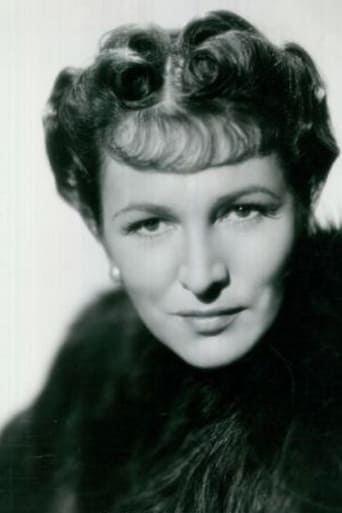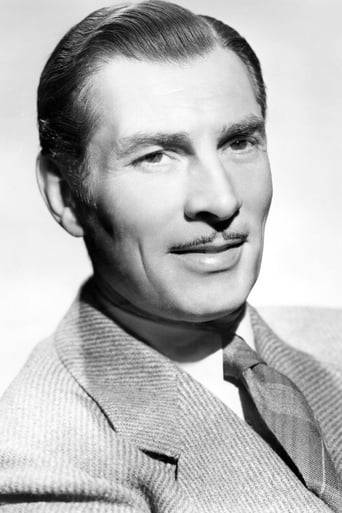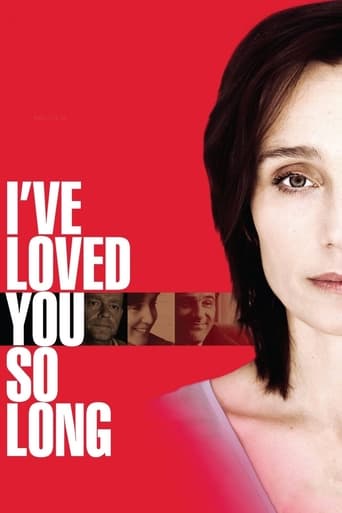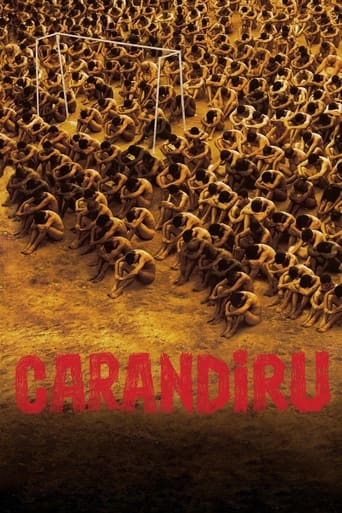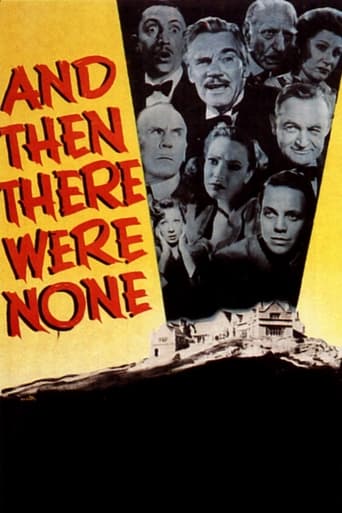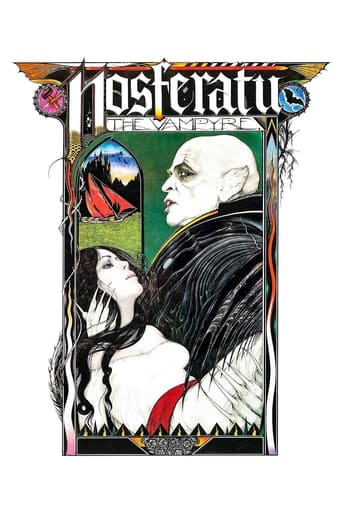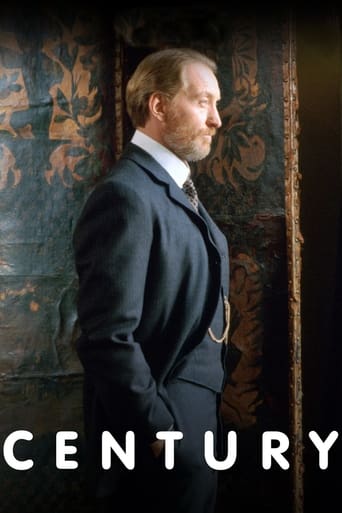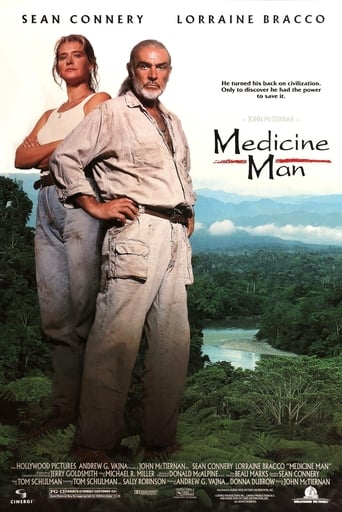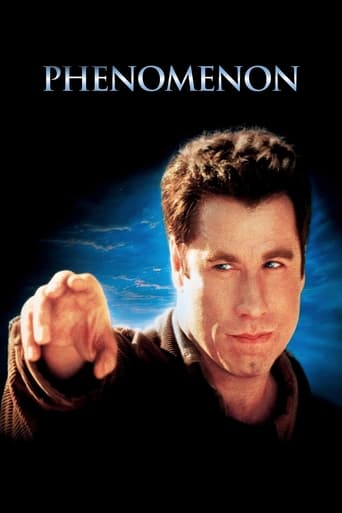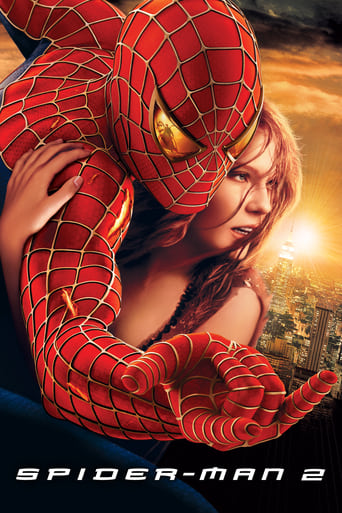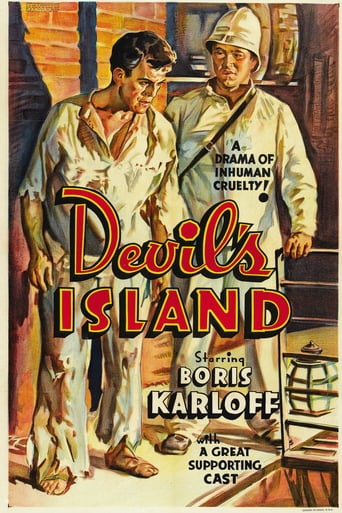
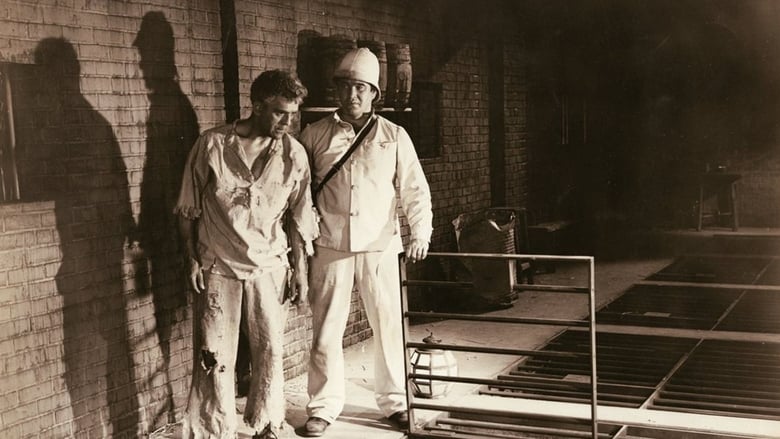
Devil's Island (1939)
A French doctor sentenced for treason performs brain surgery on the prison commandant's daughter.
Watch Trailer
Cast
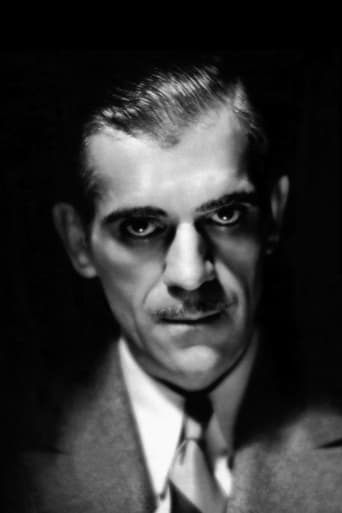


Similar titles
Reviews
The history surrounding director William Clemens's "Devil's Island" emerges as far more interesting than the 62-minute Boris Karloff film itself. Initially, Warner Brothers had hoped to follow up an earlier movie, the studio's 1937 release "The Life of Emile Zola," about the incarceration of a Jewish officer, Captain Alfred Dreyfus of the French Army, who had been unfairly convicted of selling military secrets to the German Army. The Dreyfus affair instigated a spectacular scandal, too. Like all of France's high profile political prisoners, Dreyfus had been sent to the penal colony on Devil's Island. Similarly, the protagonist of Clemen's film is a French physician, Dr. Charles Gaudet (Boris Karloff of "Frankenstein"), who is convicted of treason and shipped off to Devil's Island. Gaudet does what any prisoner would attempt after he is confined to the dreaded island. He rebels against the harsh discipline, and his cohorts resort to violence that lands them in even greater trouble. Eventually, Gaudet is prevailed upon to perform surgery on the young daughter of the commandant. The prison physician Dr. Duval (Edward Keane of "The Roaring Twenties") lacks the experience in treating head injuries, while Gaudet has acquired a reputation for treating prior his imprisonment. The commandant, Colonel Armand Lucien (James Stephenson of "Beau Geste"), isn't as grateful to Gaudet for his service as his wife, Madame Lucien (Nedda Harrigan of "Scandal Sheet"), is. She believes her husband has dealt too harshly in his treatment of the doctor. She turns against him and brings about his demise as a consequence of his corruption. When Warner Brothers finally got around to making "Devil's Island" in 1938, the French government had stopped sending prisoners to the notorious prison. Back in those days, Hollywood went out of its way to accommodate foreign governments. Specifically, the Production Code Administration refused to tolerate studios that alienated any foreign country by showing their institutions in a deleterious light. Despite the prison's heinous reputation for cruelty beyond imagination, "Devil's Island" soft-pedals the punishment meted out to the prisoners. At one point, a prisoner is condemned for his rebellious activities, and he finds himself on the guillotine. Mind you, Clemens couldn't depict the awful death by beheading that execution on a guillotine involved. Similarly, Hollywood was not allowed to condemn American institutions. The only way the studios could circumvent this dictum was to alter with their narratives so the institutions and the governments that operated them could not be implicated. Instead, Devil's Island isn't the cause for the inhuman treatment of its inmates. The blame rests squarely on the shoulders of the corrupt Colonel Armand Lucien, and Lucien has documented his own corruption in a notebook that Gaudet discovers. This way Hollywood could indict an individual rather than an institution. Lucien's wife goes above and the beyond the call of duty to intervene on behalf of kindly Dr. Gaudet. Interestingly enough, the circumstances that culminated in the arrest and imprisonment of Gaudet have parallels in the case of another physician, Dr. Samuel Mudd, who encountered Abraham Lincoln's assassin John Wilkes Booth when the latter sought medical treatment for an injured leg. Mudd knew nothing about Booth's notoriety until it was too late, and he was sentenced to life imprisonment. "Devil's Island" is reminiscent of John Ford's "The Prisoner of Shark Island" (1936). The gritty depiction of "Devil's Island" paved the way for later yarns, specifically Franklin J. Schaffner's movie "Papillon" (1973) with Steve McQueen and Dustin Hoffman. The description of Devil's Island and the impossibility of escape as well as the dreadful conditions are presented here for the first time. Later, Humphrey Bogart would star in a World War II movie "Passage to Marseilles," about prisoners who escaped from the camp to fight for France. Typically, Karloff movies delivered shivers, but "Devil's Island" delivers shivers of another type. No, this isn't so much a horror movie as it is a social protest drama, a genre that Warnes Brothers had specialized in since the studio's infamous "I Am a Fugitive from a Chain Gang" (1932) with Paul Muni. Karloff plays neither a monster nor a mad scientist here, but he is cast as a respectable doctor with a flawless background.
At just over an hour, this prison drama is riveting from start to finish, sort of a follow-up to "The Life of Emile Zola" as it deals with the themes of prison brutality and reform. Like the Joseph Schildkraut character in that 1937 Best Picture winner, this deals with a man unjustly sent to Devil's Island, treated cruelly, yet mercifully saving the life of the daughter of prison head Henry Stephenson. The brutality of the guards lead to rebellion, an execution by guillotine, and later a hopefully successful escape. A weakened prisoner is forced to work, and in his dying moment accidentally pushes his pick into the path of an oncoming carriage, causing the young girl to fly onto the rocky road, but even the death of a prisoner doesn't stop the guards from continuing their brutality. A sincere performance by Karloff and excellent technical work makes this an above average programmer.
Devil's Island (1939) *** (out of 4) Gritty prison drama from Warner Bros. features Boris Karloff as a brain surgeon who is sent to Devil's Island, although he's innocent. Once there he sees the torture brought on by the warden and plans on doing something about it. I was really surprised by how good this one was. The film would have benefited by a longer running time and some deeper scenes but it's still highly entertaining. Karloff was the best of the horror actors in my opinion but he could sleepwalk through roles every once in a while. Here he gives one of the best performances of his career outside the role of the monster. He had a burning energy throughout the film that was a lot of fun to watch. The ending doesn't work but this would be a good selection for Vol. 2 of the Controversial Collection since this film was originally banned in France and had the French government put a ban on all Warner films for a couple years (so I read).
Dr. Gaudet(Boris Karloff) is a respected brain surgeon, and is unjustly sentenced to ten years' imprisonment on Devil's Island. Gaudet draws attention to himself by complaining about the in-human conditions and leads an unsuccessful revolt. As punishment, the warden sentences Karloff and his comrades to death. Boris Karloff plays the lead convincingly, making himself as pathetic a character as possible. It is a very mild acting role for Boris, and that is probably why George Raft had turned the role down. France decided not to eliminate the notorious colony and attacked the film as anti-French at the preview in January 1939. They immediately banned all future Warner Bros. films. A year later it was released, but by this time, France was too busy with World War II to object.


